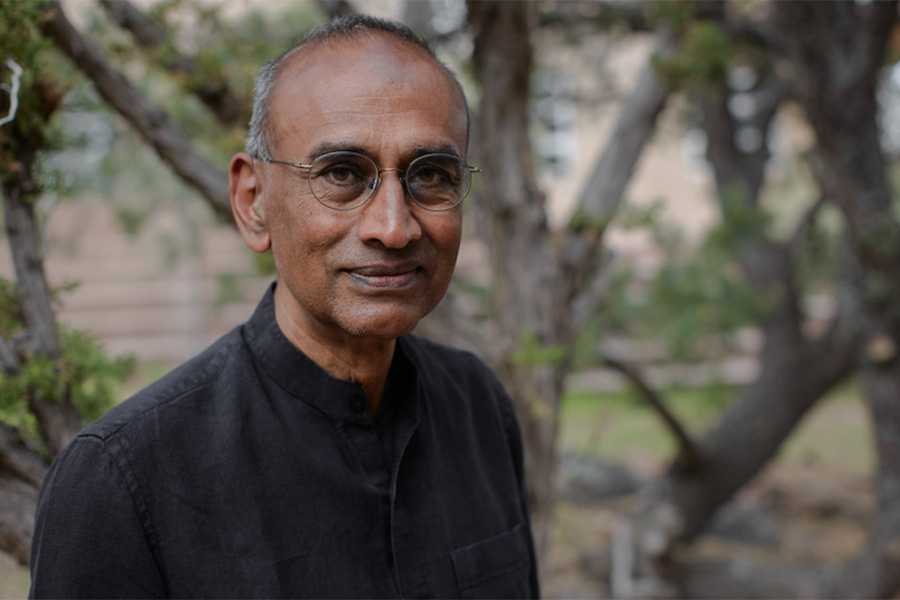FSU to host chemistry Nobel Laureate for public, specialized lectures on ribosome structure

Florida State University will host a world-renowned structural biologist and winner of the Nobel Prize in Chemistry this month for a series of lectures and a book signing on his interdisciplinary research in biology, physics, chemistry and molecular biophysics.
Nobel Laureate Venki Ramakrishnan will present the public lecture “My Adventures in the Ribosome” on Monday, Jan. 22 at Opperman Music Hall, followed by a signing of his book “Gene Machine: The Race to Decipher the Secrets of the Ribosome.” The event is free and open to the public, but tickets are required and can be reserved at tickets.fsu.edu.
On Tuesday, Jan. 23, Ramakrishnan will deliver the Robson Distinguished Lecture, “Initiation of translation in eukaryotes,” geared toward faculty, postdoctoral researchers and students in the Department of Chemistry and Biochemistry, Institute of Molecular Biophysics, and Department of Biological Science, at the Kroto Auditorium. Registration is not required for the Robson Lecture, but seating is limited.
“Venki Ramakrishnan embodies the spirit of scientific exploration, venturing into challenging problems with a fearless interdisciplinary approach,” said Hong Li, director of the Institute of Molecular Biophysics and professor of chemistry and biochemistry. “Originally trained as a physicist, he was captivated by the mysteries of biology, leading him to switch fields and make groundbreaking discoveries. This captures the essence of the Robson Lecture, sponsored by the Institute of Molecular Biophysics, celebrating scientific pioneers who push boundaries and defy conventional thinking. His remarkable scientific journey is an inspiration to anyone with a curious mind.”
Ramakrishnan received the Nobel Prize in Chemistry for his work on ribosomal structure in 2009, alongside biochemists Thomas A. Steitz and Ada Yonath, and was knighted in 2012 for his contributions to molecular biology. He also served as president of the Royal Society, the United Kingdom’s national academy of sciences and the world’s oldest independent scientific academy from November 2015 until November 2020, and he was a group leader of the Medical Research Council Laboratory of Molecular Biology in Cambridge, England, one of the world’s leading biological science research institutes, for more than 20 years.
The 2009 Nobel Prize in Chemistry was awarded to Ramakrishnan, Steitz and Yonath for researching the ribosome, describing its three-dimensional structure and explaining the mechanism of protein production.
Proteins are often thought of as the macromolecules that provide structure to the human cell, but they also do much more. Few macromolecules are as important as proteins in executing, maintaining and regulating pathways, systems and processes that enable life as we know it. Understanding how proteins are synthesized by ribosomes, the protein factory of the cell, not only helps in treating diseases but also forms the backbone of molecular biology experimental systems, including forensic DNA analysis, gene therapy and more.
Ramakrishnan and his colleagues are confident that this research and the subsequent studies on medical applications for binding ribosomes to various antibiotics can address a large challenge in medicine and help develop a new generation of antibiotics that more specifically inhibit the protein synthesis of bacteria ribosomes. This helps scientists combat antibiotic resistance in bacteria, allowing medicines to better serve their purpose in the human body.
The Robson Distinguished Lecture was established through a generous gift from FSU physics alumnus Brant Watson, a Professor Emeritus of Neurology and Biomedical Engineering at the University of Miami Miller School of Medicine, in honor of his mentor and major professor, FSU Professor Emeritus of Physics Donald Robson. For more information about the lectures, visit fla.st/3AIHE2AI.
